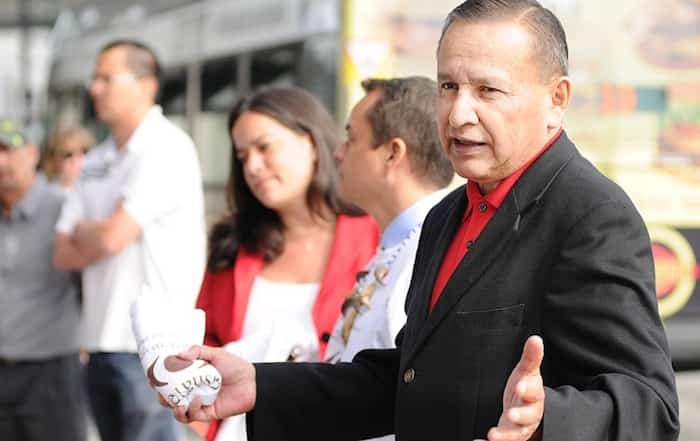Fifteen years ago, I wrote a column in The Richmond News calling for a new holiday in B.C. I thought the province should give working folks a day off in mid-February, perhaps to commemorate Chinese New Year, the creation of the Canadian flag in February 1965, or a day to recognize families.
In 2013, five years after that column ran, the provincial government declared Family Day, a new statutory holiday in mid-February, which we happen to be enjoying this long weekend.
Earlier this month, the government introduced legislation to create another new holiday, September 30, a National Day for Truth and Reconciliation. The federal government declared the holiday in 2021, but it wasn’t provincially recognized until this year.
“It’s a day to honour the resilience, dignity and strength of survivors and intergenerational survivors and remember the children who never came home,” the province announced. “It's a chance to engage and educate people about B.C.'s colonial history and how it has and continues to impact Indigenous communities.”
September 30 is already recognized as Orange Shirt Day – a day when people wear orange shirts to remember the experiences of Indigenous children who were taken from their families and placed in residential schools. It began with the story of Phyllis Webstad, a B.C. child whose grandmother bought her a brand new orange shirt to wear when she went to residential school when she was six years old in 1973. That shirt was taken away from her on her first day, so she never got to wear it.
“The colour orange has always reminded me of that and how my feelings didn’t matter, how no one cared and how I felt like I was worth nothing. All of us little children were crying and no one cared,” Webstad says in her story, posted on the Orange Shirt Day website.
The Northern Secwpemc woman now tells her story to encourage other survivors to share their stories, so that more people understand the trauma of residential schools.
Creating a statutory holiday “to honour survivors, their families and communities and ensure that public commemoration of the history and legacy of residential schools remains a vital component of the reconciliation process” was one of the Truth and Reconciliation Commission’s calls to action.
Some may question the need for another statutory holiday, but I believe this holiday is firmly needed. Not, as I argued for the February holiday in 2005, as a chance to rest and recharge, but rather as an opportunity for every Canadian to reflect on the damage of residential schools and colonialism and the effects those policies are still having today and to consider what they personally can do to further reconciliation.
Grand Chief Stewart Phillip, president of the Union of BC Indian Chiefs, supports the idea, but cautions that for the holiday to be meaningful, healing and the capacity for change will be necessary.
“…(W)e still need to see broader acknowledgment of the harms of the residential school system along with significant investments into public and private education, former residential school site investigations, and into commemoration, remembrance events and memorials led by First Nations to bring healing to our people and change for our future generations,” Phillip said.
The negative effects of colonialism are still widespread today. There is a drastic over-representation of Indigenous children in government care, Indigenous people are more likely to die from toxic drugs, and nearly one-third of prisoners in Canadian jails are Indigenous, while Indigenous people only account for five per cent of the population. The harms and inter-generational trauma of colonialism and residential schools drive these statistics and all Canadians must take responsibility to make positive changes going forward.
If we all focus on learning about this and transforming our society for at least one day a year – September 30 – it will be time well spent.
Eddy Charlie, from Orange Shirt Day Victoria, said we need to find our way together, and I agree.
“What we need from each other is to stop blaming each other and engage in meaningful conversations with one person at a time,” Charlie said in a news release. “Everyone knows that violence begets violence and breeds more hatred. … Reconciliation is not at the end of the conversation; it must always be moving like a strong current of the rivers of the lands.”
Tracy Sherlock is a freelance journalist who writes about education and social issues. Read her blog or email her [email protected]



